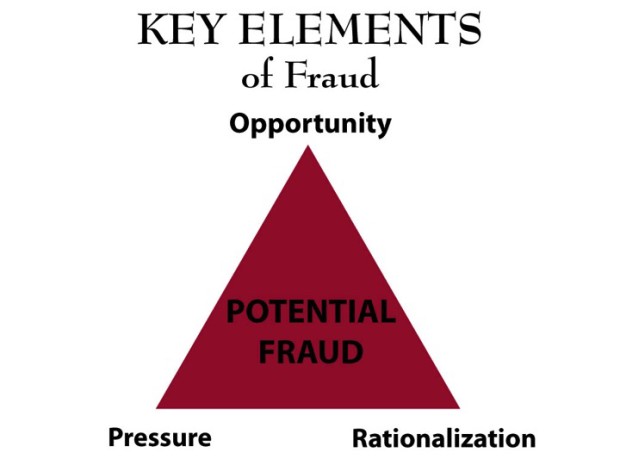Post 3 of 5: The Key Elements of Fraud
Let’s continue our discussion on fraud. (For our 2nd Post on fraud with recent examples we’ve seen, click here.)
FRAUD \ noun\ ‘fröd\
Definition of FRAUD
1a: DECEIT, TRICKERY; specifically : intentional perversion of truth in order to induce another to part with something of value or to surrender a legal right.
In other words, fraud is pretending to be something other that what you are, or lying. Fraud can take on many forms:
- In biblical times, Jacob pretended to be his brother, Esau, to trick his father into giving him the birthright that legally belonged to Esau.
- Cheating on a test in school.
- Pretending to have similar beliefs/likes/etc as a fiancee before marriage.
- Pretending to be a neighbor’s friend whenever you want to borrow equipment or tools.
In 2010, the Association of Fraud Examiners reported that over 42% of all reported fraud occurs in small, private companies and is perpetrated by a trusted company employee! (For more from the ACFE on how most fraud is perpetrated by trusted employees who largely go unprosecuted, click here.)
This type of fraud can range from:
- The innocent “borrowing” of office supplies. Post it notes, reams of paper, etc
- Padding of an expense account, to
- Embezzling funds through various schemes that can include, payments to fictitious vendors, forging checks, etc.
Almost daily, we hear a story of another company whose employees have decided to take matters into their own hands and increase their take-home pay or the company’s profits through creative accounting.
Fraud involves three key elements as represented here – Pressure, Rationalization & Opportunity.
Pressure can be applied from many sources:
- A sense of needing to keep up with the Jones’, pressure to have what your neighbor has or more than your neighbor.
- A situation where household expenses surpass income. Where the money runs out before the end of the month
- Pressure from dunning, relentless creditors. Often contacting a debtor during work hours.
- The pressures of addiction. Shopping, gambling, alcohol, etc,
Rationalization can also have many voices. It may sound like:
- While I’m here running his business, Mr. Jones is out playing golf.
- Mr. Jones drives an Escalade and lives in a big house, while I come to work in my 78 Gremlin and live in the projects. My AC doesn’t even work and it’s July in Texas, 110 degrees in the shade.
In our 4th post, we will look at the third element, OPPORTUNITY.





